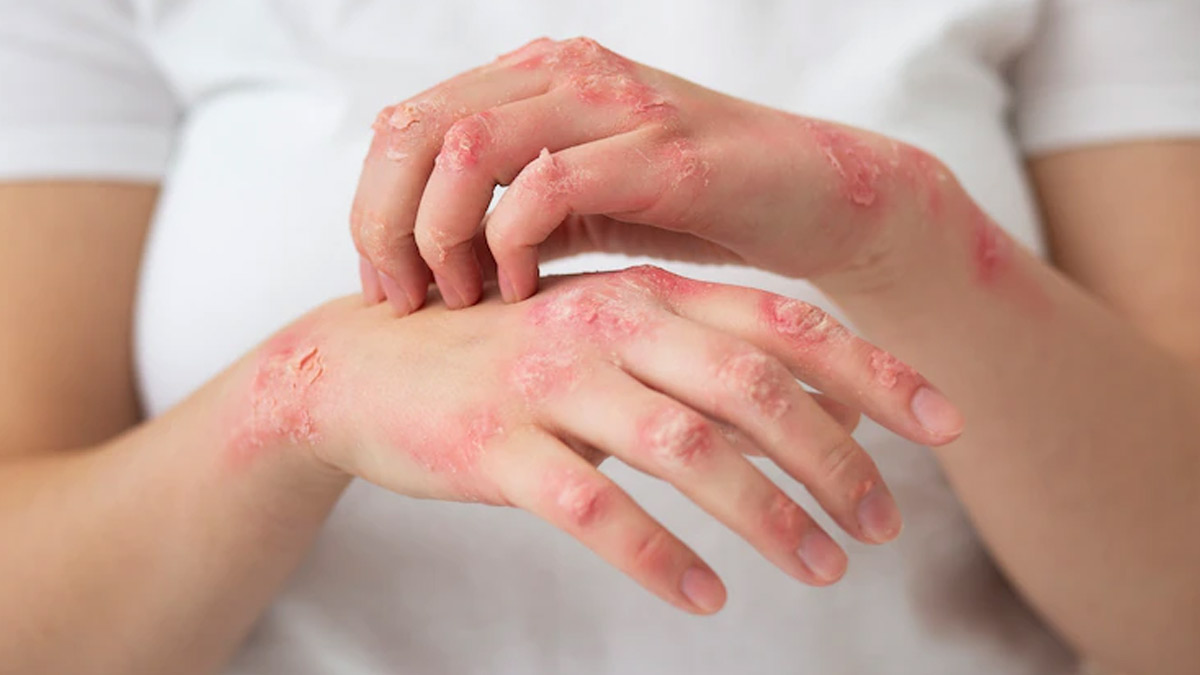
Plaques on your skin develop in psoriasis, a chronic skin condition that can result in pain, itchiness, scaly patches, and discolouration of the skin on the healing of the lesions. This is because the cells of your skin tend to multiply very fast, and it cannot shed the cells as quickly. It mostly happens on your knees, elbows, scalp, genitals, palms, feet, or trunk. It is not contagious and cannot spread by skin-to-skin contact. Psoriasis can be managed by maintenance therapy which has to be taken lifelong. Initially, the lesions start on the skin; if they start affecting your joints, the disease is not reversible. Read this article to learn what our expert, Dr Madhulika Gupta, Dermatology Resident (MD), says about the symptoms, aggravating factors, and psoriasis treatment.
Symptoms Of Psoriasis

Some of the symptoms that may indicate psoriasis are as follows:
- You may witness patchy rashes or burning in the area that has been affected
- You may experience itchiness in your skin
- Your skin may be cracked or turn dry
- Your nails may crack, get pitted or may have discolouration of the skin on the healing of the lesions.
- You may witness pain or swelling in your joints
Aggravating Factors For Psoriasis

- It can aggravate in people with dry skin
- People who are obese
- People who consume excess alcohol or smoke
- People with infections or strep throat. In addition, medications like lithium, antimalarials, anti-inflammatories, etc can also aggravate psoriasis.
- It can also be aggravated by factors like stress
Treatment For Psoriasis
Psoriasis cannot be cured, but there are some ways in which it can be treated effectively. Some of the treatment options are as follows:
Topical Treatments
Steroids, vitamin d3 topical, topical retinoids, dithranol, and coal tar are some medications involved in this treatment. They come in the form of lotions, creams, and foams and are given to people with mild to moderate psoriasis. For instance, dithranol is a medicine applied directly on the skin to reduce the growth of skin cells in this treatment. It is a short-term treatment and may cause burns if its concentration is too high. However, you should use them in the required amounts as overusing them can cause thinning of your skin.
Phototherapy
Phototherapy treatment involves exposing your skin to sunlight to slow the growth of skin cells. This treatment can be given alone or may be combined with topical treatment.
Also Read: How Psoriasis Can Affect Your Liver & Heart, As Per Our Skin Specialist
Oral Retinoids
Oral retinoids, biologics and immunosuppressives are some forms of this treatment. Methotrexate, one of the immunosuppressives, is injected into patients once a week. Meanwhile, biologics are the kind of drugs that are made from living materials which alter your immune system. They are given as injections and help in reducing inflammation of the skin. They are used for people with moderate to severe psoriasis. Some of the biologics are Bimekizumab, Remicade, and Brodalumab.
Takeaway
You should visit a doctor if the affected skin area spreads or causes pain. Maintaining a balanced diet, exercising regularly, and getting proper sleep is important to avoid complications due to psoriasis. In addition, you should take regular baths, keep your skin moisturised, and avoid triggers that can lead to its symptoms.







